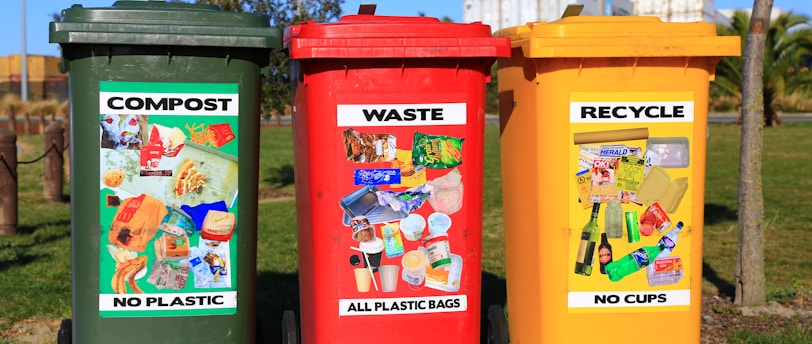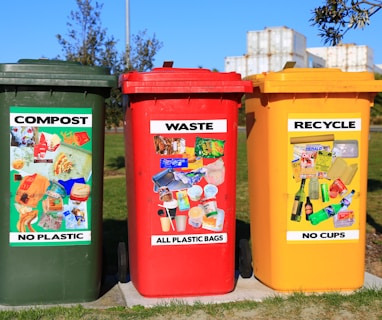Sustainable Waste Management: How to Make a Real Difference for the Planet
Sustainable waste management is the practice of reducing, reusing, and recycling waste to protect the environment and conserve resources. Here are some detailed and actionable tips for sustainable waste management.
8/18/20233 min read


Introduction
The world is facing a number of environmental challenges, such as climate change, pollution, and resource depletion. These challenges are serious and require urgent action. One way we can address these challenges is by practicing sustainable waste management.
What is Sustainable Waste Management?
Sustainable waste management is the practice of reducing, reusing, and recycling waste to protect the environment and conserve resources. It is a holistic approach to waste management that takes into account the environmental, economic, and social impacts of waste management practices.
The Benefits of Sustainable Waste Management
There are many benefits to practicing sustainable waste management. These benefits include:
Reduces waste: By reducing, reusing, and recycling waste, we can reduce the amount of waste that ends up in landfills and incinerators. This helps to protect the environment and conserve natural resources.
Saves energy: Recycling can save energy by reducing the need to extract, transport, and process raw materials. For example, recycling one ton of paper can save 17 trees, 7,000 gallons of water, 3 cubic yards of landfill space, and 3 barrels of oil.
Reduces pollution: Recycling can help to reduce pollution by reducing the amount of waste that goes to landfills and incinerators. Landfills produce methane, a greenhouse gas that contributes to climate change. Incinerators produce air pollution, which can cause respiratory problems.
Creates jobs: The recycling and reuse industries create jobs and boost the economy.
Improves public health: Reducing waste can help to improve public health by reducing the spread of disease. For example, food scraps that are composted instead of being thrown away do not attract rodents and other pests.
How to Practice Sustainable Waste Management
There are many ways to practice sustainable waste management. Here are some detailed and actionable tips:
Reduce your consumption: Before you buy something, ask yourself if you really need it. If you don't need it, don't buy it.
Reuse items: Instead of throwing something away when you're done with it, try to find a way to reuse it. This could include things like donating it to charity, selling it online, or upcycling it into something new.
Recycle materials: When you're done with something, recycle it if possible. This helps to keep materials out of landfills and incinerators.
Compost organic waste: Organic waste, such as food scraps and yard trimmings, can be composted and turned into nutrient-rich soil. This helps to reduce the amount of waste that goes to landfills and incinerators, and it also helps to improve soil quality.
Get involved in your community: There are many ways to get involved in sustainable waste management in your community. You can volunteer for a local recycling or composting program, or you can advocate for policies that support sustainable waste management.
Green Goods Guide
In addition to practicing sustainable waste management, you can also support sustainability by buying green goods. Green goods are products that are made from sustainable materials or that are produced in an environmentally friendly way. When you buy green goods, you're supporting businesses that are committed to sustainability.
Here are some examples of green goods:
Organic produce: Organic produce is grown without the use of synthetic pesticides or fertilizers. This helps to protect the environment and human health.
Fair trade products: Fair trade products are produced by workers who are paid a fair wage and who work in safe conditions. This helps to ensure that workers are treated fairly and that they have a decent standard of living.
Locally-sourced products: Locally-sourced products are grown or produced in your community. This helps to reduce food miles and support local businesses.
Reusable products: Reusable products are made from materials that can be used over and over again, such as stainless steel water bottles and canvas bags. This helps to reduce waste and conserve resources.
Conclusion
Sustainable waste management is an important part of protecting the environment and conserving resources. By following the tips in this blog post, you can help to reduce your environmental impact and make a difference for the planet.
Related SEO Keywords:
sustainable waste management
waste reduction
resource conservation
environmental protection
green goods
organic produce
fair trade products
Locally sourced products
Reusable products
We hope this blog post has helped you learn more about sustainable waste management and how you can make a difference.
